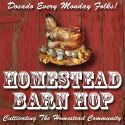I talked in our last letter about the choice to make before you continue your study. I'm going to write about Chapter Analysis first and then double back to cover the Chapter Summary/Verse Analysis option.
Chapter Analysis takes several hours, so I'm going to cover the steps in a couple of letters. First, let's get a bird's eye view of where we're headed.
Chapter Analysis
- Create a chapter summary
- Observe the passage carefully
- View the chapter in its historical/cultural context
- Correlate the chapter with similar passages in the Bible
- List your conclusions and check with a trusted commentary
- List applications and create meditation prompts
- Create paragraph and chapter titles
The first step in chapter analysis is to create a chapter summary.
- Read through the chapter taking notes. Look for natural divisions. Keep in mind you are reading a relatively modern English (Western) translation of an ancient Near Eastern document. There will be themes that run from the beginning of the chapter to the end, and still others that are part of a larger book theme. Some will seem to plot against you by connecting two divisions. These can be frustrating to deal with, but once you understand the principle of chiastic structure they are incredibly beautiful. It may be easier to think of sectioning a chicken for frying. I may section it into two breasts, two legs, two thighs and use the rest of the bits and bobs for broth. You might divide the same chicken into two breasts, two leg quarters, and four wing sections instead. Neither one of us is "right", it's just personal preference. The point is to divide the chapter up so it can be studied.
- Go through the passage marking just the simple subject, verb, and objects on your worksheets. I use the same symbols I used as a child: underline the subject once, the predicate twice, and draw an arrow to the object. It's sometimes useful to actually write the chapter out this way.
- Finally, create an outline of the passage. Remember, Eastern writing relies heavily on chiastic structure so the chapter won't usually fit neatly into an American-style outline. I outlined Psalm 19 "David Ponders God's World (1-6)" "David Ponders God's Word (7-11)", and "David Ponders His Own Heart (12-14)." At the very end of the chapter analysis you'll use these initial thoughts to help you create paragraph and chapter titles.
In my next letter we'll get into what most students consider the "fun" part of inductive study, identifying and marking up a passage on the worksheets.
Loving you more every day,
Mom
Inductive Bible Study, Part 1: Preparation
Inductive Bible Study, Part 2: Read
Inductive Bible Study, Part 3: Seeking the Context
Inductive Bible Study, Part 4: Book Summary Key
Inductive Bible Study, Part 5: The Choice
Inductive Bible Study, Part 6a: Chapter Analysis
Inductive Bible Study, Part 6b: Identifying Key Words
Inductive Bible Study, Part 6C: Finding the 3C's
Inductive Bible Study, Part 6D: It's About Time
Inductive Bible Study, Part 6E: Keep Digging
Inductive Bible Study, Part 6F: Word Studies
Inductive Bible Study, Part 6G: Considering Context
Inductive Bible Study, Part 6H: Application Brings Transformation
Inductive Bible Study, Part 7: Wrap It Up!
Inductive Bible Study, Part 2: Read
Inductive Bible Study, Part 3: Seeking the Context
Inductive Bible Study, Part 4: Book Summary Key
Inductive Bible Study, Part 5: The Choice
Inductive Bible Study, Part 6a: Chapter Analysis
Inductive Bible Study, Part 6b: Identifying Key Words
Inductive Bible Study, Part 6C: Finding the 3C's
Inductive Bible Study, Part 6D: It's About Time
Inductive Bible Study, Part 6E: Keep Digging
Inductive Bible Study, Part 6F: Word Studies
Inductive Bible Study, Part 6G: Considering Context
Inductive Bible Study, Part 6H: Application Brings Transformation
Inductive Bible Study, Part 7: Wrap It Up!










.jpg)









